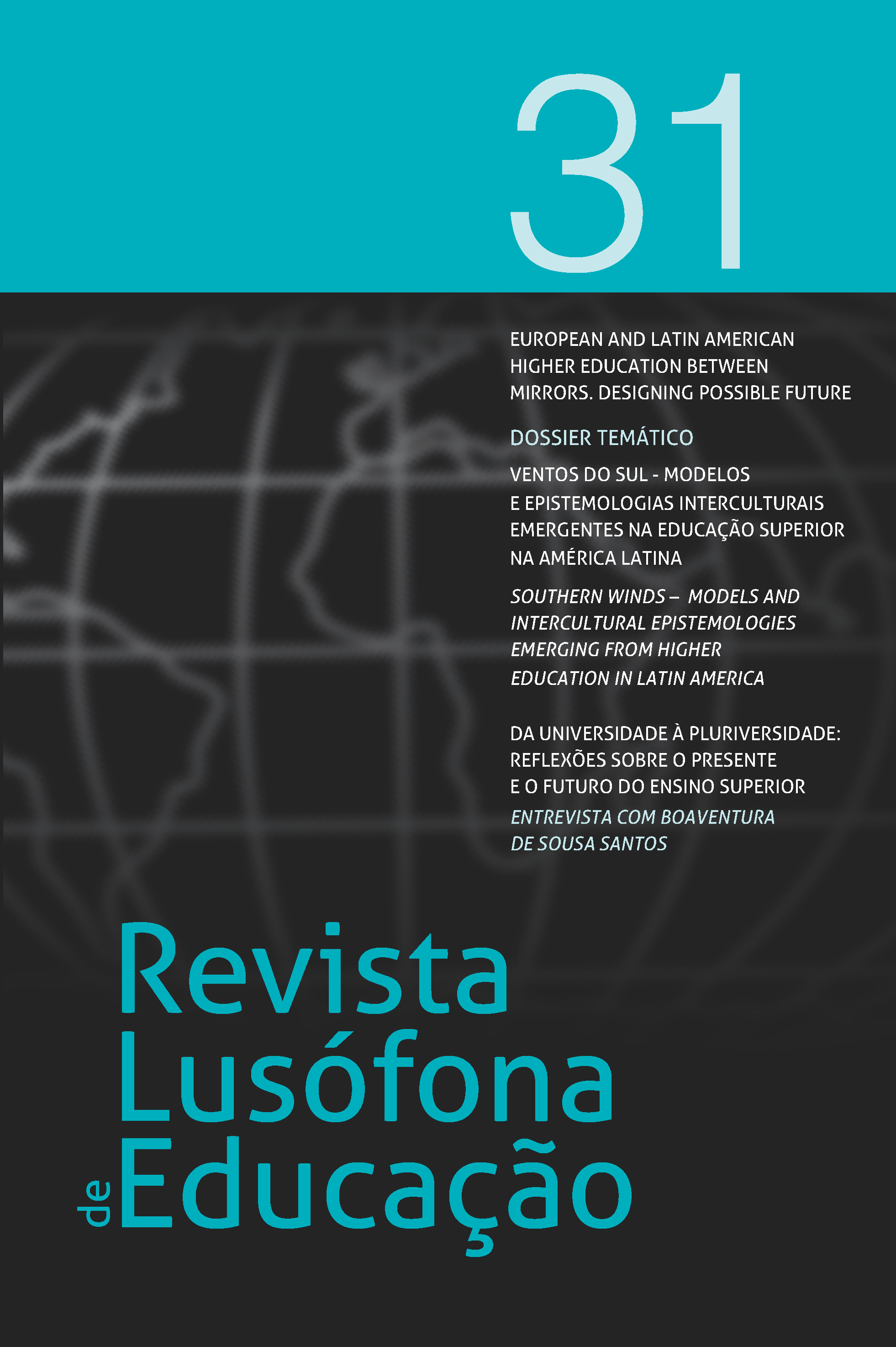European and Latin American Higher Education Between Mirrors. Designing possible futures
Abstract
This paper discusses some of the analyses and proposals presented by a large network of European and Latin American researchers that developed a broad programme on institutional equity and social cohesion in higher education institutions, between 2011 and 2013. The impact of higher education expansion and diversification has been felt and questioned differently in the various countries, due to their history and place in the world system, to their education systems, to their organization, or their ability to react, to mobilize resources and to implement relevant policies. The article has Europe and Latin America as privileged locus of analysis, but acknowledges that many of the characteristics and issues described are part of a global agenda. It is assumed that neoliberalism has failed as a model of economic development, but it is recognized that, as policy for culture, it is (still) in force, derived from having become a common sense that shapes the actions of governments and education policy-makers. The University, as well as higher education policies, may have another sense and give an important contribution to the construction of fair societies, fighting for equality among human beings, fully respecting their differences. This is the sense of the nine proposals for a radically democratic and Citizen University the paper ends with.
Keywords:
higher education; academic networks; Europe; Latin America; citizen university.
Downloads
-
Authors retain copyright of their work, without any payment, and grant the journal the right of first publication. The work is simultaneously licensed under a Creative Commons Attribution 4.0 International License (CC BY 4.0), which allows others to share (copy and redistribute the material in any medium or format) and adapt (remix, transform, and build upon the material for any purpose, even commercially), provided that proper credit is given to the author(s) and the initial publication in RLE is acknowledged.
-
Authors are permitted to enter into separate, additional contractual arrangements for the non-exclusive distribution of the version of the work published in this journal (e.g., depositing it in an institutional repository or publishing it as a book chapter), provided that authorship and initial publication in RLE are acknowledged.
-
Authors are allowed and encouraged to post and disseminate their work online (e.g., in institutional repositories or on their personal websites), as this can increase the visibility and citation of the published work (see The Open Access Effect).








